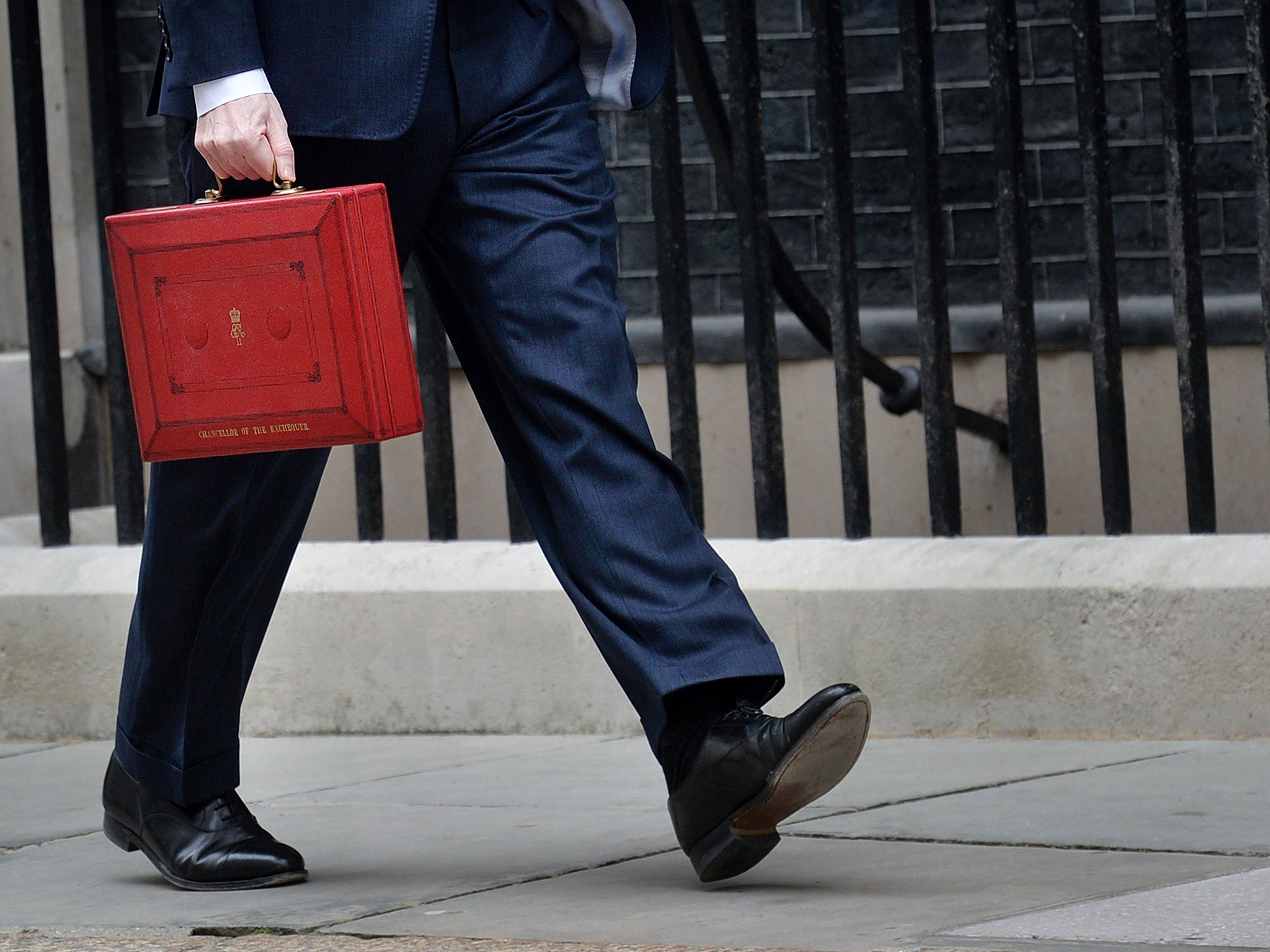Your support helps us to tell the story
From reproductive rights to climate change to Big Tech, The Independent is on the ground when the story is developing. Whether it's investigating the financials of Elon Musk's pro-Trump PAC or producing our latest documentary, 'The A Word', which shines a light on the American women fighting for reproductive rights, we know how important it is to parse out the facts from the messaging.
At such a critical moment in US history, we need reporters on the ground. Your donation allows us to keep sending journalists to speak to both sides of the story.
The Independent is trusted by Americans across the entire political spectrum. And unlike many other quality news outlets, we choose not to lock Americans out of our reporting and analysis with paywalls. We believe quality journalism should be available to everyone, paid for by those who can afford it.
Your support makes all the difference.Did the last Labour government overspend? Candidates for the opposition leadership are being urged to confess to this alleged economic crime. One – Liz Kendall – has already done so. The pressure is not new of course. There have been calls for Labour to repent for past fiscal sins since Gordon Brown walked out of Downing Street in 2010. But the volume has been cranked up in the wake of the party’s election defeat.
The apology lobby, which extends beyond the Conservatives and now encompasses most of the mainstream media, cites opinion polls which show Labour was not trusted by many voters to manage the economy competently. If Labour wants to recover that trust, goes the argument, it must acknowledge past errors. It’s a depressing spectacle, not least because the terms are so ill-defined. What does “overspent” actually mean? There seem to be three distinct charges. First, that Labour’s overspending was responsible for the 2008-9 recession. Second, a more subtle version of the first, that the country’s economic crisis would have been less severe if Labour had run budget surpluses before the crash. Third, that Labour squandered public money in the years before the crisis.
The first is nonsense, the second exaggerated, and the third is irrelevant. First, the idea that Labour’s spending caused the recession. No sensible person believes this. Even the permanent secretary to the Treasury, Sir Nicholas Macpherson, recently rubbished the idea, and admitted the economic disaster was “a banking crisis pure and simple”. But was public spending irresponsibly loose? Let’s look at the numbers. In 2006/7, the final full fiscal year before the crash, the budget deficit was 2.7 per cent. That’s well within the bounds of historic experience. It’s true, as the Tories often state, that global bodies such as the International Monetary Fund and the Organisation for Economic Co-operation and Development now say there was a large underlying structural deficit in that year. But that was not their view at the time. Indeed, so sustainable were the public finances thought to be that even the then shadow Chancellor, George Osborne, felt able to pledge to match Labour’s spending plans.
Would a budget surplus have helped cushion the public finances from the force of recession? Yes, it would have meant a smaller peak deficit in the crisis, which blew out to 10 per cent of GDP in 2009-10. Yet this should not be overstated. Reckless banks would still have gone bust. Consumer confidence would still have collapsed. Terrified businesses would have stopped investing. GDP would have contracted sharply and the resulting collapse of tax revenues would inevitably have ravaged public finances.
It would also have been a strange choice to have run a surplus in 2006/7 given that the public debt to GDP ratio then was just 37 per cent, lower than the 40 per cent Labour inherited a decade earlier, and moderate by historic and international standards. What about the charge that Labour was wasteful? No doubt Whitehall could have extracted better value for money under Labour. But that’s always true. Even the Tories believe they can squeeze a further £15-20bn in efficiency savings out of spending by 2020. And anyway, this argument is tangential to the charge of fiscal incompetence, which concerns the sustainable flow and level of state borrowing not questions of how the money is spent.
No; the great economic error of the past decade was made by those who argued that governments should cut spending in synchronisation with the private sector – something that would have made the slump worse. It was made by those who opposed fiscal stimulus on ideological grounds when private demand fell off a cliff at the fastest rate since the Great Depression. It was made by those who ignored calls for caution and pushed through a front-loaded fiscal consolidation before the recovery was secure, suppressing growth. If an economic apology is due it should come not from Labour’s leadership candidates but from the person who committed these costly mistakes: George Osborne.
We shouldn’t hold our breath of course. The election result has been interpreted by many as a kind of vindication of the Chancellor. And, given the media’s obsession with the “Labour overspent” narrative, a symbolic abasement from the next Labour leader feels almost inevitable. But it would be regrettable. There are a multitude of things that the last Labour government got seriously wrong, from its attack on civil liberties to its failure to regulate UK banks. But incompetence in matters of fiscal management, however loud the demands for apology grow, does not feature on the list.
Hamish McRae is away
Subscribe to Independent Premium to bookmark this article
Want to bookmark your favourite articles and stories to read or reference later? Start your Independent Premium subscription today.

Join our commenting forum
Join thought-provoking conversations, follow other Independent readers and see their replies
Comments